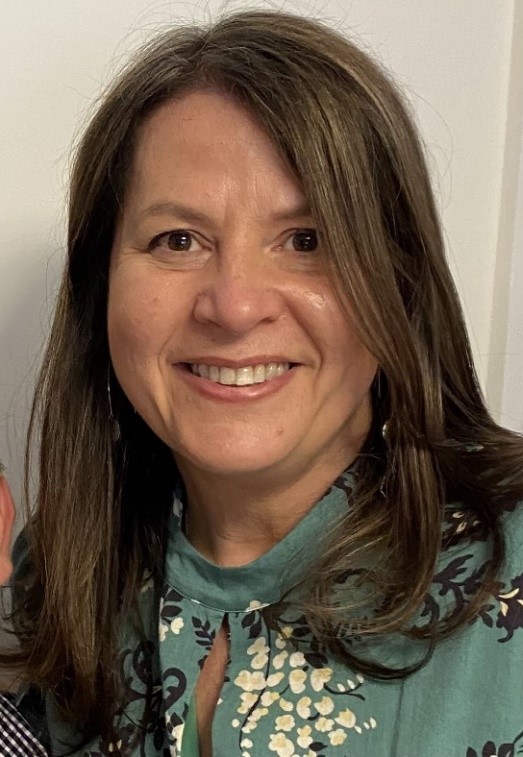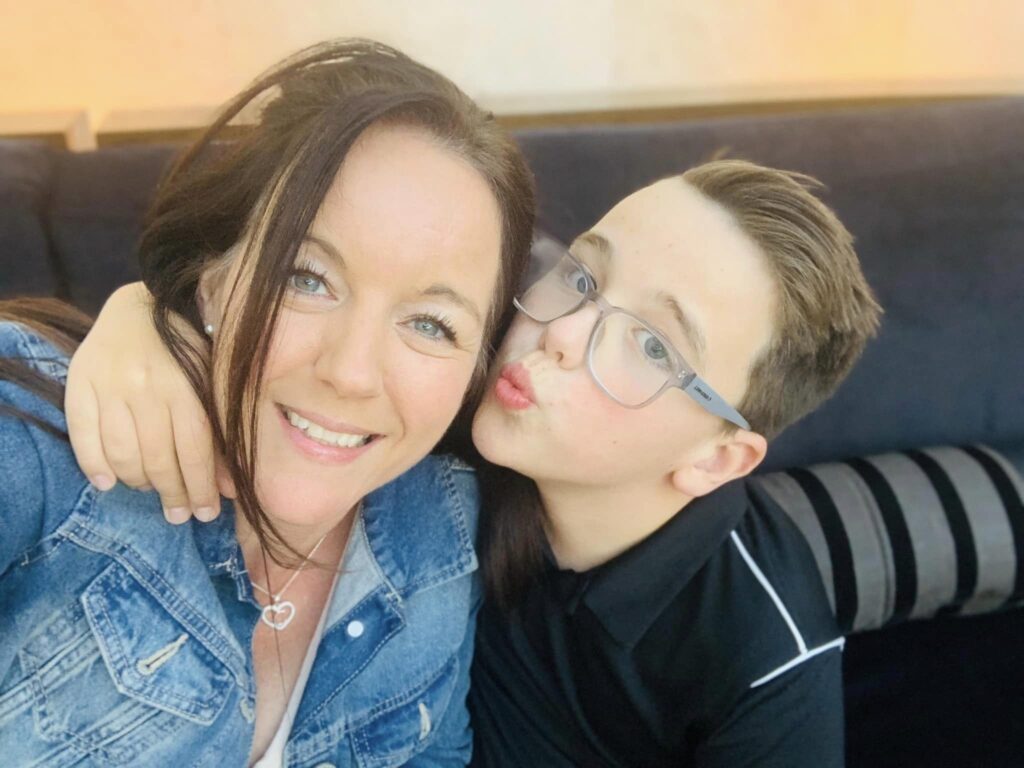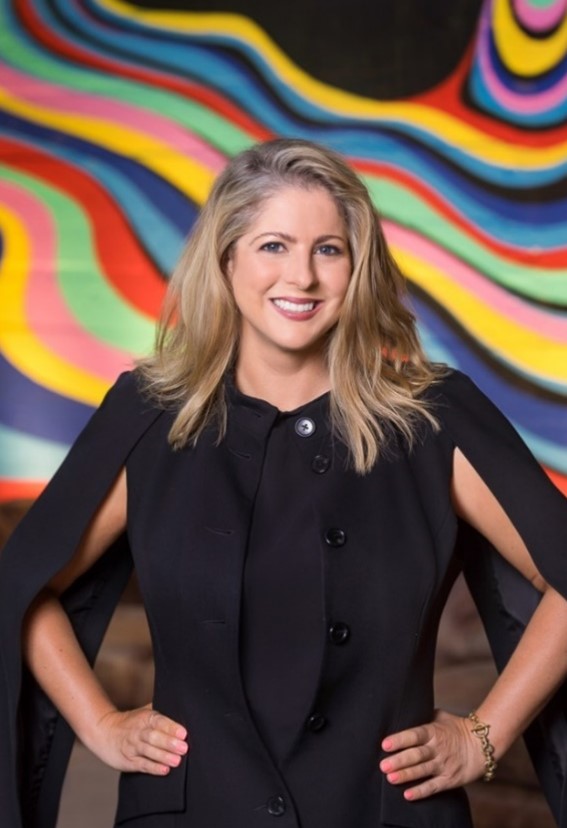Two-time athletics World Champion, four-time Commonwealth Champion, mother-of-six and Women’s health doctor, Jana Pittman, 40, Sydney, is speaking up and raising awareness about the heavily stigmatised and taboo topic, heavy menstrual bleeding.

Heavy menstrual bleeding is a topic close to Jana’s heart as she herself, has experienced this throughout her 20’s whilst she was competing.
Jana is championing dialogue around the new Australian research which has surveyed 5,000 Australian women aged 35-52 years discussing this common but rarely spoken about health condition.
Jana says it “It shouldn’t be this bloody difficult. We need to be each other’s village, break the silence, talk about our period health, and raise community awareness on behalf of all Australian women and girls who are living with HMB.
Dr Brad Robinson an Obstetrician and Gynaecologist at Greenslopes Private Hospital, Brisbane said ‘Women are not having the conversations they should be having with their GP or healthcare provider, and if women don’t know what the symptoms of heavy menstrual bleeding are, then they’re really not empowered to be able to seek treatment.”
https://vimeo.com/867835287?share=copy – Jana Pittman piece to camera
https://vimeo.com/867818127/3b78a3fc16?share=copy – Dr Brad Robinson’s piece to Camera
https://vimeo.com/867836214/6362ed7ffc?share=copy – Kate, 39’s pieces to camera

Cardiorespiratory physiotherapist and mother-to-two, Kate, 39, Brisbane, wrestled with heavy menstrual bleeding (HMB) symptoms for four years, which resulted in severe anaemia, and compromised her mental health.
A year after the birth of her second child Lucy, at age 35, Kate began to experience debilitating periods, which caused severe anaemia and fatigue, and rendered her ‘cognitively fuzzy’ and not herself for the ensuing four years. Her periods were extremely heavy each month, which left her feeling exhausted for the remainder of the month, even when she wasn’t menstruating.
Before seeking medical advice, Kate felt like she was losing her mind. She began to feel overwhelmed both at work and at home, and started to question why she wasn’t coping.
“I put up with HMB for three years, mistakenly thinking it was part of my body changing, and simply being a woman,” said Kate.
“Severe anaemia was my biggest challenge, because I was exhausted all of the time, and had less patience for people, including members of my family.
“I was so relieved to finally receive a diagnosis of HMB. It was comforting to have confirmation that it all wasn’t just in my head,” Kate said.

Customer experience manager and mother-to-two, Yvonne, 49, Melbourne, has been grappling with heavy periods since the tender age of 13.
Yvonne recalls experiencing significantly heavier periods than her fellow classmates in her teens, accompanied by painful cramps, tiredness, iron deficiency and severe leakage.
“I’ve always had heavy periods and have had to be very mindful of flooding.
“Over the years, I’ve been forced to wear two pads and a tampon for protection, yet I’d still end up flooding through them,” said Yvonne.
“Sleeping through the night was not an option for me, because I knew I would have to get up and change [sanitary protection].
“But the worst symptoms were my cramps. They would start a week before my period, and taper off towards the end of it,” Yvonne said.
“Because my symptoms were so severe, I would usually only get two-and-a-bit weeks reprieve each month.”
After finally realising that she should “not have to live with HMB”, two years ago Yvonne found a treatment that worked for her – endometrial ablation.
“Seventeen years have passed since I had my last child. I wish I had sought treatment for my condition at the time,” said Yvonne.
“I really hope we can change the narrative around HMB, because currently, we still wrongly consider it to be a natural, normal part of being a woman.”
Digital marketing manager, avid runner, mother-to-one and step mum-to-two, Clare, 43, Perth, wrestled with symptoms of HMB following the birth of her son in 2012.

Clare experienced heavy, yet tolerable periods from 13 years of age. After the birth of her first child however, Clare began to feel “sluggish and foggy”, as her periods grew heavier and more pronounced.
Her symptoms worsened over time, with the depletion of her iron levels. The experienced runner began to feel “wiped out” and light-headed after completing a simple run or working out in the gym.
At work, she began to “spiral into negative self-thought” when her “scattered brain” left her second-guessing whether she had forgotten to raise important items during her training sessions with new employees.
Clare subsequently set off on an emotional quest to secure a diagnosis for her medical condition. Fortunately, her perseverance paid off, and a year later, Clare was diagnosed with HMB by the third GP who she had seen.
“I searched for a diagnosis but found it very challenging. I often ended up in tears, begging healthcare professionals to help me,” Clare said.
“I visited a number of doctors. One prescribed anti-depressants and very few linked it with my heavy periods, but rather, mistakenly attributed it to mental health issues.”
“It’s crucial that we, as a community, champion dialogue, diagnosis and the treatment of HMB so that women and girls no longer continue to suffer in silence,” said Clare.
Accounting firm principal and mother-to-one, Kama, 43, Sydney, has wrestled with heavy periods for the past decade.

Despite living with heavy periods from her teens, Kama’s symptoms escalated about 10 years ago.
Suddenly, Kama began to experience three-day-long migraines, excruciating lower back pain, and an “eye-watering” burning, aching feeling in her uterus.
Reeling from pain, Kama’s HMB started to pervade all aspects of her life – from a physical, mental, professional, and social perspective. Yet Kama still failed to recognise her HMB symptoms were abnormal, and concerningly, chose to push through her pain.
Fortunately, three years ago, armed with invaluable knowledge, care and support from her gynaecologist, Kama chose to finally address her HMB.
“The most severe pain I experienced was toward the end of my periods, when I was suddenly hit with eye-watering uterus pain,” Kama said.
“The pain was similar to that which I experienced during the birth of my son.
“It was only three years ago, that it finally dawned upon me, that was I was experiencing, just wasn’t normal,” said Kama.
“I was fed up, and knew I couldn’t go on living like this. The whole situation was completely absurd. I was finding it impossible to manage my heavy periods.”
“We need to openly discuss HMB, because for so many years I just felt like I had to suck it up,” Kama said.
“No one ever explained what a heavy period entailed to me for decades. I just didn’t realise that what I was living with, was abnormal.”
Freelance copywriter and mother-to-three, Natasha, 39, Brisbane, battled extremely heavy periods for over 25 years which in turn, triggered Premenstrual Dysphoric Disorder (PMDD) – an anxiety related condition that causes severe mood shifts prior to menstruation.

Living with heavy, but tolerable periods from 12 years of age, Natasha’s symptoms escalated after the birth of her first child in 2013.
She developed stomach bloating, extreme fatigue, mood swings and heavy bleeding, which worsened following the birth of her second and her third child.
Next, Natasha was diagnosed with PMDD, which, together with her HMB symptoms, began to pervade all aspects of her life – from a physical, mental, professional, and social perspective.
Fortunately, armed with invaluable support from her gynaecologist, Natasha found an effective treatment for her HMB three years ago.
“I never realised HMB was a medical condition until my diagnosis in 2015. I just thought it was something many women lived with,” said Natasha.
“I wasn’t aware treatment options were available until deep into my journey of living with heavy periods.
“Having finally found an effective treatment, I want to inform women that there’s no need to put up with HMB because treatment options are available,” Natasha said.
Should you suspect you, or a loved one, are living with HBM, visit your doctor without delay.
For more information about HMB and treatment options available, head to www.livecomfortably.com.au
